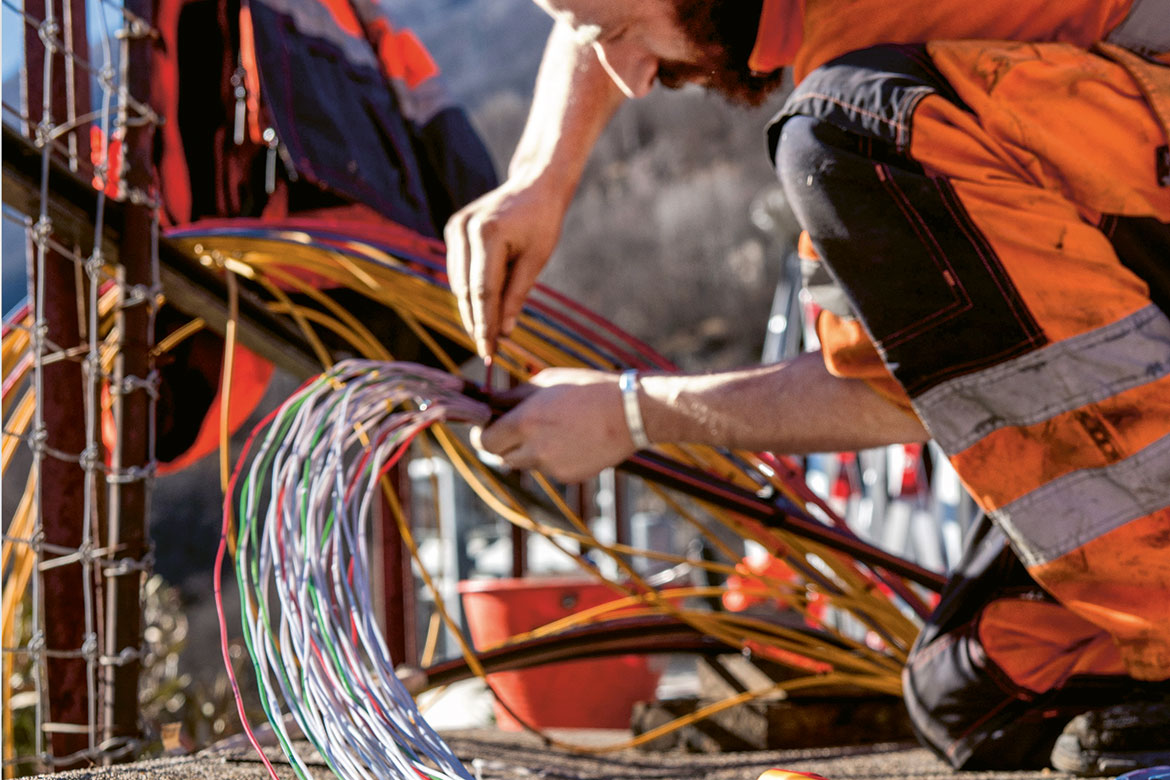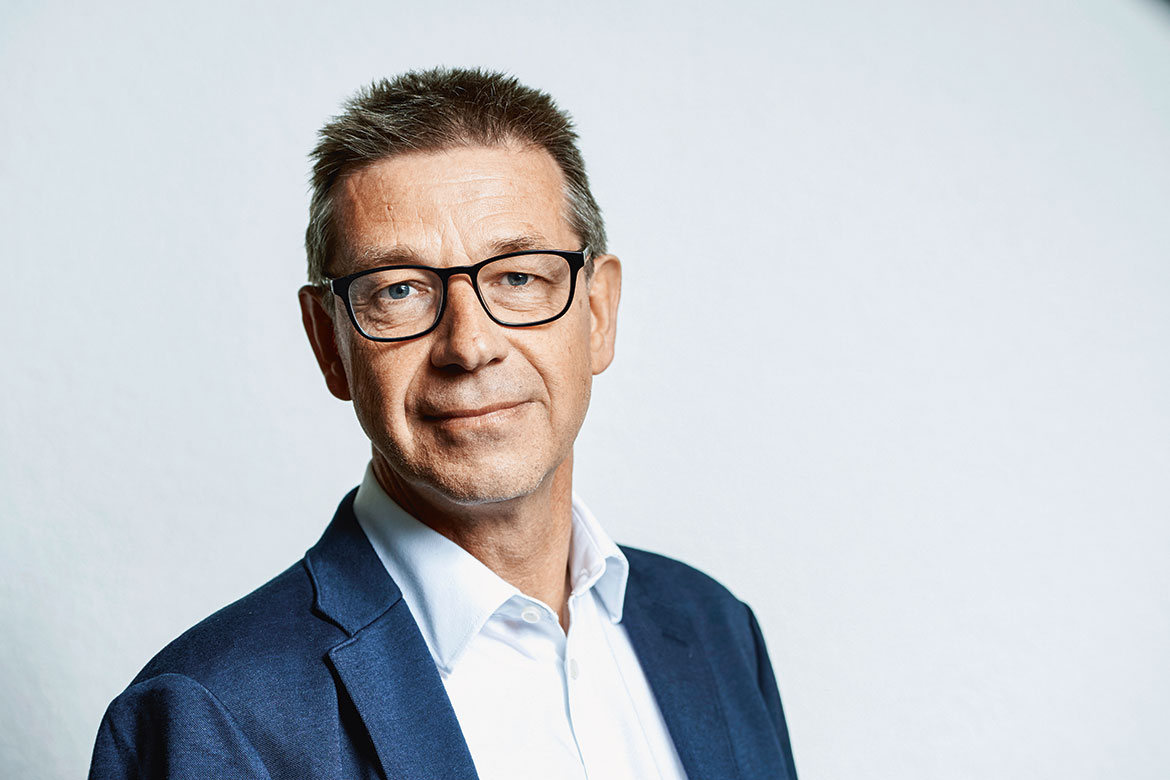Swiss researchers are building a quantum Internet
In order for quantum communication to work over large distances, it needs repeaters and light storage. Swiss researchers are working on this.

A well-developed fibre-optic network could one day guarantee secure quantum communication. | Image: Keystone/Ti-Press/Carlo Reguzzi
Today, one computer hack seems to follow another. This makes secure communication all the more important. And this is precisely what quantum communication promises. “This technology is ideal for banks, big companies and state applications – such as the military”, says Hugo Zbinden from the University of Geneva. In other words: for everyone who has an urgent need to keep things secret.
Swiss researchers are among the world leaders in quantum communication. Furthermore, their recent progress in important components looks very promising.
The technology has the advantage of needing no new cables, because photons can be transported along normal fibre-optic cables. The photons store so-called ‘quantum codes’ that enable messages to be sent securely via conventional networks. Quantum cryptography promises perfect security, at least in theory. But because photons are absorbed, the signal becomes unreliable after just a few hundred kilometres. So researchers are trying to achieve longer distances in smaller stages. The intermediate stations have to be fitted with so-called ‘repeaters’ to enable the information to continue to flow in a stable manner.
Quantum repeaters exploit a specific characteristic of quantum mechanics: information carriers can be ‘entangled’ in pairs – such as two atoms. Even when entangled-information carriers are far apart, they react in a coordinated manner when they are measured. Now researchers have come up with cunning procedural tricks for the repeaters to clean the entanglement and refresh it.
Apart from this, quantum communication needs light storage. Because even photons that do not arrive synchronously at the intermediate stations have to be drawn into the broader procedure. Mikael Afzelius’s team at the University of Geneva is developing crystalline light storage. They recently demonstrated how excited metal ions or rare earths can store light. Last autumn, however, a team led by Philipp Treutlein at the University of Basel also presented a new means of light storage made of rubidium vapour, steered by laser pulses.
Both approaches have their advantages and disadvantages, whether using vapours or solids. “Perhaps different types of light storage will be suitable for different applications”, says Treutlein. But in either case, three criteria are important: “The light storage has to be highly efficient, it has to guarantee a long storage time, and it should ideally be able to store several qubits”, says Afzelius.
Researchers are at present working on light storage and quantum repeaters. No complete, functioning system as yet exists, but they hope to have reached that stage in five to ten years. Meanwhile, theoreticians such as Michael Zwerger from the University of Innsbruck are pondering procedures for the quantum communication of the future – for a time when processors, quantum memory and repeaters will be meeting demands far higher than what is required of them today.
Next-generation repeaters
In the course of recent research at the University of Basel, Zwerger and his colleagues published a proposal for a quantum repeater of the next generation (or the next-but-one). Such repeaters would have to deal with hundreds of qubits in the quantum Internet of the future. Up to now, the number of qubits needed for such repeaters has increased according to the distance they have to cover. In Zwerger’s repeater protocol, however, the number of qubits needed to transmit a qubit would be independent of distance thanks to improved entanglement distillation. “In the long-term, this can make a difference because it spares resources”, says Treutlein. However, there will have to be a lot of technological progress before it’s possible to control hundreds of qubits at once, admits Zwerger.
The Swiss National Centre of Competence in Research (NCCR) ‘QSIT – Quantum Science and Technology’, which also supported Zwerger’s work, would in the coming years like to develop real quantum networks. The company ID Quantique in Geneva offers commercial quantum communication products (which at present remain a very small market) and has already tested a precursor of such a network. So can we expect the emergence of a kind of quantum Internet in future? “It sounds great”, says Zbinden, “but that’s still a long way off”.
Sven Titz is a freelance science journalist in Berlin.




